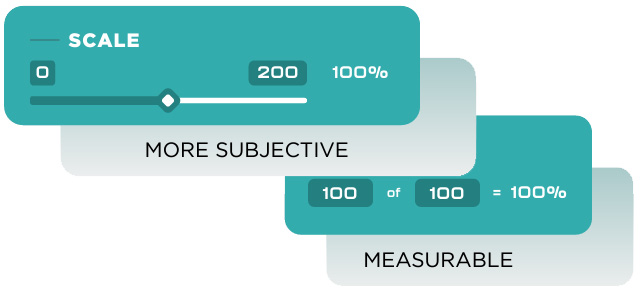In recent years, addressing high employee turnover has become a critical issue for organizations of all sizes, especially since finding a replacement can cost twice as much as the employee’s salary.
The causes of employee turnover can range from termination, resignation, and retirement to interagency transfers, but the ramifications are always dire. Beyond the cost and effort of hiring new employees, training them, and recovering lost productivity, the company culture also takes a hit.
To combat these challenges, many companies are turning to engagement software and talent strategy companies to help reduce their employee turnover rate. By implementing robust talent strategies and using advanced engagement tools, companies can benefit from a more efficient and effective hiring process. This, in turn, helps attract and retain top talent, improve the bottom line, and create a more positive and productive workplace culture.
How Does High Turnover Affect Your Business?
To some degree, employee turnover is a normal and healthy part of business operations, something that every organization will experience from time to time. However, there is a point where turnover becomes a hindrance, affecting your ability to grow. High turnover rates are usually a sign of a larger organizational issue, which can lead to financial problems, productivity challenges, and damage to the company’s reputation.
Financial Costs
High employee turnover creates several financial challenges, mainly because losing an employee is expensive. There are a variety of costs associated with onboarding a new team member, off-boarding an old one, getting job listings on the market, and costs incurred during the interviewing and training processes. Shockingly, it can cost companies between 16%-20% of the previous employee’s salary to hire a replacement. As a result, companies with high turnover rates end up spending vast amounts of their financial resources and time on recruitment instead of focusing on innovation, sales, or other organizational investments that will facilitate growth.
Decreased Productivity
Even if you hire an experienced employee to replace someone who left, there is still the issue of getting them up to speed on learning the specific tools and processes that are unique to your company. Becoming well-versed in your company’s products and services and getting accustomed to the team and work culture is another time-consuming task new hires have to go through. For most organizations, it will take a few months before they can truly “replace” the previous employee in terms of productivity.
Loss of Institutional Knowledge
When employees leave, they take with them institutional knowledge, which can be difficult to replace. This knowledge includes company policies, procedures, and best practices, as well as relationships with clients and vendors. Losing this knowledge can lead to decreased efficiency, errors, and even loss of business.
Negative Impact on Company Culture
One of the most overlooked aspects of high employee turnover is its effect on company culture. Frequent employee departures can indirectly impact office morale. Employees may develop distrust or insecurities towards management when turnover is high. Additionally, high turnover can affect internal relationships within your organization. Employees who have developed good relationships and friendships may become disconnected from the office culture, especially when it takes several months to find a comfortable rhythm with new employees.
Reduced Customer Satisfaction
Since clients often develop relationships with your employees, high employee turnover can lead to decreased customer satisfaction and poor reputation. Transitions take time and can often be complicated, meaning your clients may not get the level of service they expect when a new employee is onboarded.
How a Talent Strategy Partner and Engagement Software Can Improve Employee Turnover
Working with a talent strategy company and utilizing engagement software can be indispensable when companies are competing fiercely to hire top talent. By integrating engagement tools that measure and enhance employee satisfaction and partnering with a talent strategy expert, you can ensure your team is staffed with the best person for the job in terms of both skills and values.
Save Time with a Comprehensive Talent Strategy
Developing a comprehensive talent strategy is often a time-consuming process. You need to identify the necessary skills, determine where the new employee will fit into the organization’s structure, and set benefits and salary caps before posting an official job listing. Then you move on to the interview and selection process before extending an offer. It can take several months before your new hire officially starts, and even then, several more weeks of onboarding and training are required. Productivity tends to suffer during this time, and team members may feel overworked. Talent strategy companies can help reduce periods of low productivity by building a pipeline of strong candidates ready to be interviewed for vacant positions.
Hire People Suited to the Job
Hiring the most qualified candidates is essential to reducing employee turnover. If your new hire has the relevant experience and is capable from the start, they will make a great impression and immediately start getting results. Talent strategy experts bolster staff retention rates by recruiting the perfect person for the role and ensuring excellent candidate care.
Energize Your Existing Team with the Right Hires
Finding the right employee for a particular team can significantly change the team dynamic by ushering in fresh energy. Talent strategy companies identify candidates who have experience transforming teams and can implement positive change, increasing productivity and morale.
Ensure New Hires Transition Well
A talent strategy partner with an exceptional onboarding process can make new starters feel welcome and understand what is expected of them. They also increase your overall employee retention rate by serving as an external point of contact between recruits and the employer, leading to better communication.
Hire the Right Person for the Right Position
One of the best ways to keep turnover rates low is to hire the right person for the right seat. While it’s important to hire qualified candidates with a specific skill set, it’s not the only criterion you should look for during the interviewing process. Hiring the right person for the right seat means evaluating how that candidate will fit into your organization’s culture. When you hire a candidate who checks both boxes, the outcome is longer retention and better organizational success. Talent strategy companies have spent years developing hiring processes that evaluate candidates based on both skills and cultural fit.
Source Qualified Talent with the Right Skill Set
Partnering with a talent strategy company improves the effectiveness of your recruiting strategy. These experts are trained to source the most qualified candidates who not only have the skills you need but are also a good cultural fit. They consistently deliver these results because of their expertise and extensive talent network.
Include Your Company’s Culture in the Search
Talent strategy experts understand the importance of cultural fit and work to identify candidates who align with your company culture. They take the time to understand your company’s mission, values, and work environment, using this information to identify candidates who will thrive in your organization. Partnering with a talent strategy company can help you find candidates who have the right skills and experience and fit in with your company culture, leading to long-term success and high employee retention rates.
![5 Ways to Improve Employee Engagement Through Feedback [brandname]-feedback-featured](https://securedb.io/kb/wp-content/uploads/2023/04/etho-feedback-featured.jpg)




